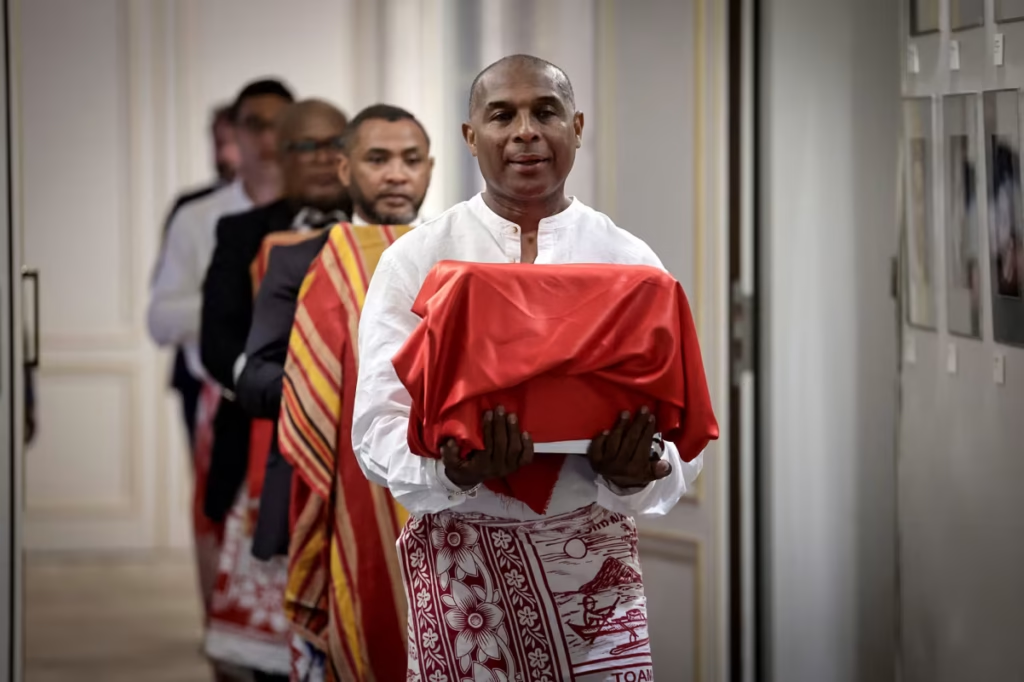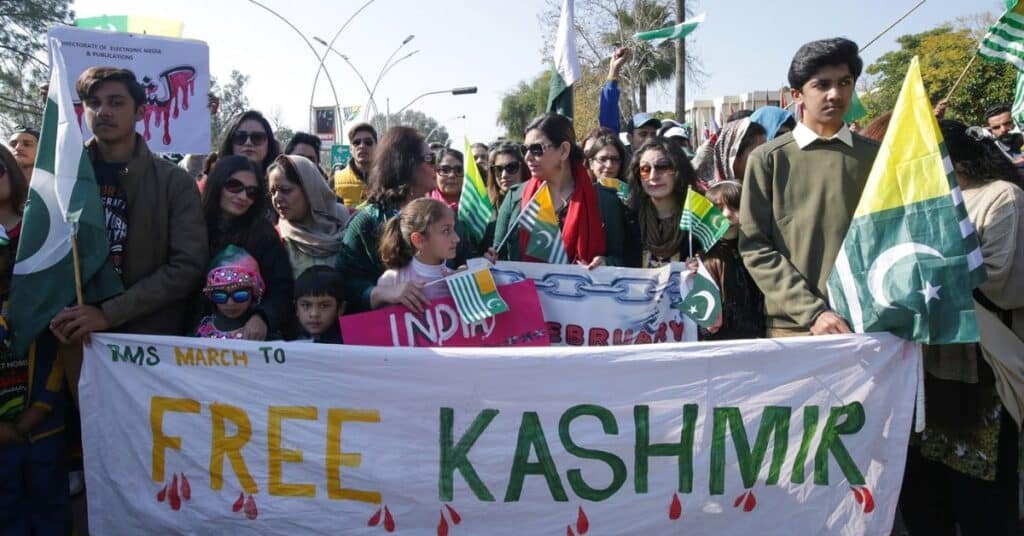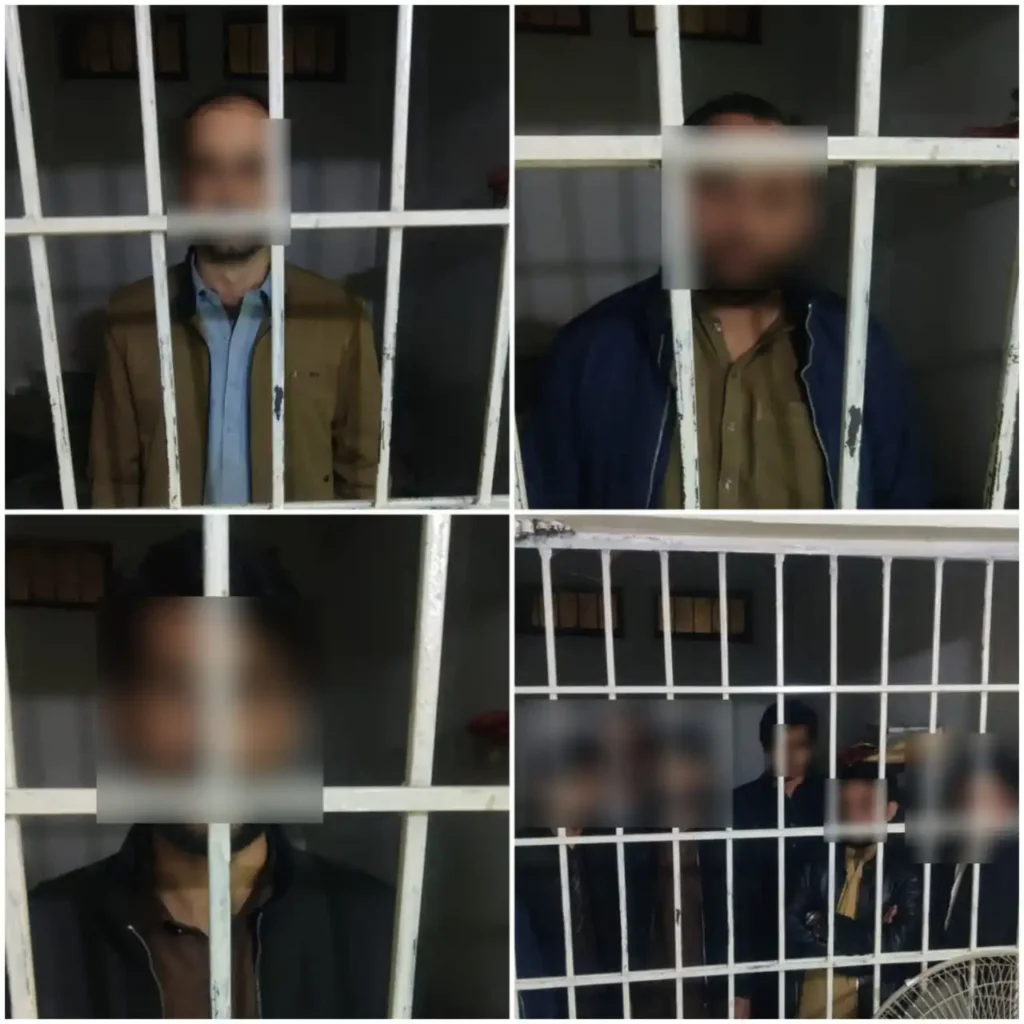France has returned three skulls to Madagascar after more than a century, including one from a 19th-century Malagasy king who was beheaded by French troops.
The skulls are the first to be returned to the island nation off the southeast coast of Africa after France implemented a 2023 law that allows human remains to be brought back to a country for cremation purposes.
France conquered the kingdoms of the Sakalwa people in western Madagascar in the 1890s and incorporated the Sakalwa into a newly formed French colony.
Madagascar, which gained independence from France in 1960, has returned one of the three Sakalava skulls, the French Culture Ministry said in a statement on Tuesday. He was executed by French troops in 1897.
French Culture Minister Rachida Dati speaks during a ceremony marking the return of three skulls. The other two skulls belonged to two generals who fought alongside the king, Madagascar’s Ministry of Communications and Culture said in a statement on Tuesday, announcing the return of “heroes.”
The skulls had been kept in the archives of France’s National Museum of Natural History until they were officially handed over at a ceremony at the Culture Ministry on Tuesday.
“I welcome the return of these three skulls, including that of King Tavira of Sakalao, who represents about a third of the Malagasy population,” Fitra Rakotondraswa, permanent secretary of Madagascar’s Ministry of Culture, who co-chaired the Malagasy-French Committee of Researchers, told researchers working on the identification of the skulls on Wednesday.
“This is not just the return of human remains, but the return of a part of our history and memory,” he said, adding, “We will now be able to respect these remains as they should be. This moment is for the Malagasy people and for all nations engaged in the recovery of their heritage.”
Madagascar’s Minister of Communications and Culture, Vlaamiente Dona Mara, said at the ceremony that the human remains, including “our great, truly great, King Tavira,” are not mere objects in a collection but links, “invisible and indelible, that connect our present to our past.”
“Their absence, for more than a century, for 128 years, has been an open wound in the heart of the great island (Madagascar), and in particular for the Sakalua community of Minabe,” he continued. Madagascar Ministry of Culture said the skulls would be reburied in Minabe, in the west of the island.
Addressing the occasion, French Culture Minister Rachida Dati said the event “marks a historic event between France and Madagascar.” She added that the joint scientific committee set up in October to review Madagascar’s request for restoration “has once again enabled us to understand the importance of the figure of King Tavira, for your fellow citizens and in particular for the people of Sakalao: for their identity, their dignity, their self-awareness, and for the relationship between the past and the future.”
In 2017, French President Emmanuel Macron said in a speech in Burkina Faso that “within the next five years, I want to see the conditions in place to allow for the temporary or definitive restoration of African cultural heritage in Africa.”
A report released in 2018 recommended that thousands of African artefacts looted during the colonial era be removed from French museums and returned to the continent.
A similar push for resuscitation is being made in the UK, where lawmakers and campaigners released a report in March calling for a ban on the display of human remains in museums and the sale of human body parts in auction houses.
Read also: Committee formed to assess damages caused to archaeological sites in KP





